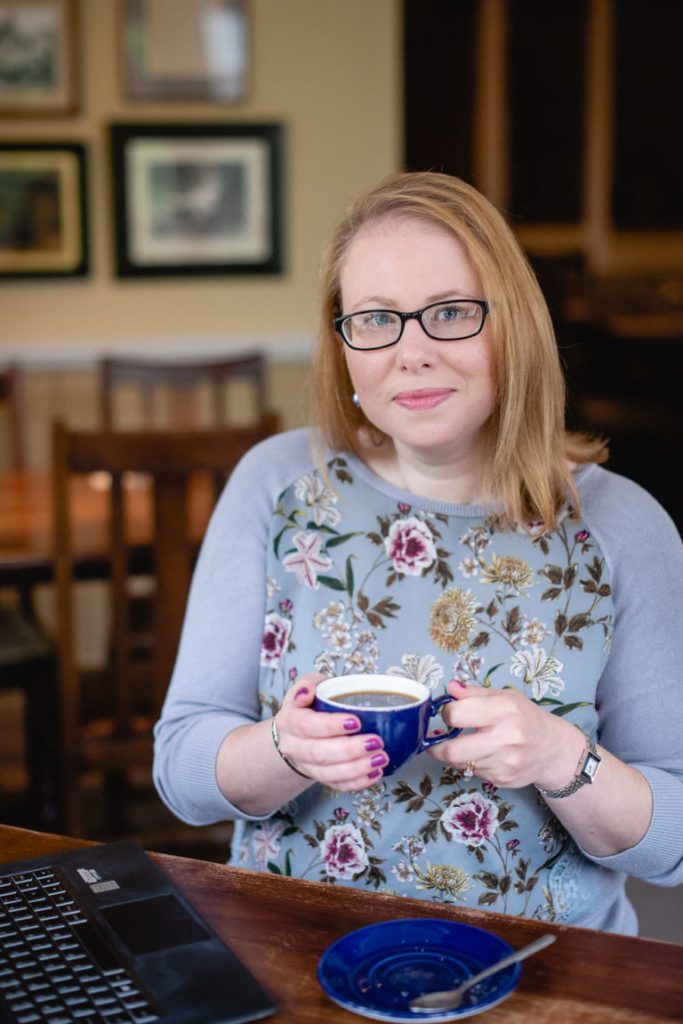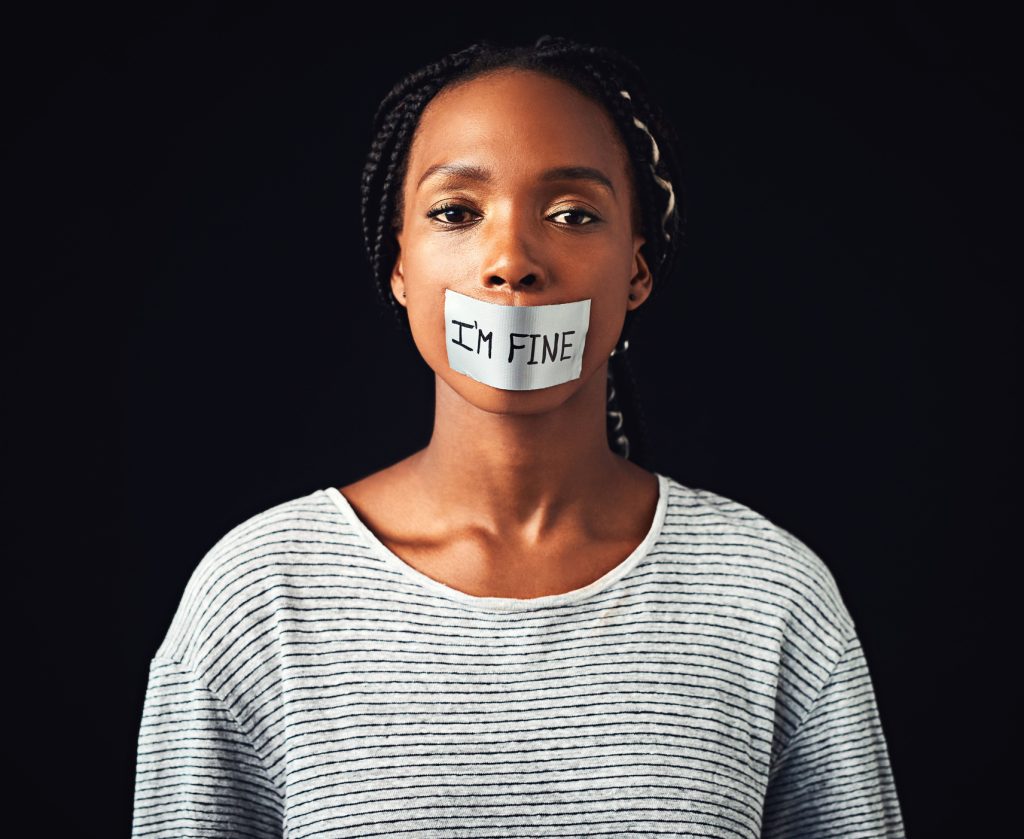The Lawbore Mental Health and Wellbeing Interviews: Hannah Beko
Any profession will have its own trials and tribulations, and the legal profession is certainly no exception, posing its own set of challenges that can cause strain upon the mental health of all those involved. Given the increasing societal awareness and the importance it plays in our day-to-day functioning, maintaining good wellbeing is key to flourishing not only as a lawyer, but as a human more generally. One way to learn to keep mentally well is by seeking lessons from the experiences of others.

Hannah Beko is a partner with Gunnercooke and the founder of Authentically Speaking. Having managed her own legal business, Hannah is well-versed with the challenges to mental health and wellbeing facing the legal community. She founded Authentically Speaking specifically to help lawyers cope with the high stress levels and pressures of the profession, and she speaks to us more about how we can work to improve this.
How did your previous legal experience lead to you founding Authentically Speaking, and how does it help your work there?
Originally, I started learning about how to deal with stress because I didn’t want to leave my business or rely upon medication to manage stress. As part of that journey I decided that this was something other lawyers need to know about, and that’s when I started Authentically Speaking. From my experience, not just personally but with all the lawyers I know, I know how stressful the job can be and how we need to find other ways to deal with that stress; it was helpful knowing what the business needed to provide.
What made you want to take such a lawyer-centred approach with Authentically Speaking, as opposed to a more general approach?
When I first started, I did work with a lot of different people; I worked with mums and people who were starting businesses. About two years ago, I started to specify that I was working with lawyers. I do it because they need the help – it’s why I founded the business in the first place – and because I really enjoy it.

Lawyers feel our profession is different, and I understand their pressures; I know about billing targets, chargeable hours, write-offs, etc. We can go straight into, ‘how are we going to deal with this? What can we do? Where are we going to start?’. With another coach, they’d have to explain how the pressure of chargeable hours work, or how stressful it is when you think you’ve made a mistake you’re going to have to tell someone about. My focus is on lawyers because I can resonate with what they’re saying, I can make a difference in helping them, and I enjoy it.
What has been the biggest change you’ve seen with regards to mental health and wellbeing in law since you founded Authentically Speaking?
When I first started, you couldn’t really talk about stress. If you mentioned it, you would get the response of either “we don’t have that problem here”, or “yes, we have a problem with stress, but that’s just normal. That’s part of being lawyer, you have to accept it”. One of my personal favourites is:
“if you can’t handle it, you’re in the wrong career”.
Nowadays, the Law Society and the Junior Lawyers Division does a lot of research about stress levels. The Law Society did some research a few years ago with over 8500 lawyers, and about 95% of them said they suffered from moderate to severe work-related stress. It used to be mostly older lawyers who were suffering from stress, usually because they were juggling family commitments with their career. Now, we’ve got junior lawyers just out of training and already struggling with high stress. Because of research and more people speaking out, the profession is starting to do something and knows that they have to. When lawyers are surveyed about what makes them choose or move firms, wellbeing is becoming more important.
Some firms have mental health and wellbeing officers and first aiders. My concern is that they’re still not doing enough and not quickly enough. In many cases, it’s just a tick box. When I ask the lawyers, “you’ve got meditation and yoga at lunchtime, a massage at your desk and fruit bowls in the reception area. Do you go to any of these classes and does it make any difference?”, you tend to get the same people going to the classes who probably don’t need the help as much as those who don’t go.
What is your vision for Authentically Speaking?
At the start of 2020, I was taking the business along the training route by doing less coaching and more in-person training at law firms. Unfortunately, things have changed; not only can we not train in-person at the moment, but law firms are looking at redundancies and how they can keep their businesses going, so there’s not the budget for training.
Over the last five months or so, I’ve gone more onto the coaching route. A lot of individual lawyers are using their own funds to invest in themselves because they’re thinking about their future – “how can I put myself in the best position coming out of COVID-19 and what’s going to be an economic crisis?”. They want to get themselves as ready as they can be.
I’ve also done a lot of group work in lockdown. Lawyers have historically struggled on their own; they feel that they’re the only one struggling with stress and can’t cope, that they’re a bad mother and a bad lawyer, etc. When they listen to other people, they suddenly realise that they’re not alone and there’s nothing that they can’t help for. I’m a big believer that the people who get help for these issues are going to be so much stronger and better-prepared in the future than those who try to sit on it and don’t do anything about it. That’s where I see the immediate future of the business going; doing much more coaching, both one-to-one and also more group work.

Would you be comfortable and happy to share your own experiences of mental health?
Within my own legal business, I was under a lot of stress. As anybody with a new business, I was saying yes to every piece of work that came through the door. Once you start to get into the world of stress, you don’t think rationally any more and start to catastrophise. I would get one email saying, “Hannah, can you get in touch with me?”, and I would go from seeing that to thinking that I’d lost my house straight away!
I wasn’t spending any time with my kids and had no separation between work and home, then my dad was diagnosed with cancer and that was the final straw. I started to have panic attacks; I thought, “I can’t live my life like this. I’ve worked too hard to be happy and to enjoy my life, and I’m not doing that right now.” I didn’t want to quit, and I could’ve tried anti-depressants, but I didn’t want to start there, I wanted to see what I could do for myself. I took up meditation, and I still do it for at least ten minutes every day, more if I can feel stress levels rising again. It’s my go-to and that started changing things for me.

What advice would you give to your younger self with regards to mental health?
Be kinder to myself. As lawyers, we are almost our worst enemies. It’s nearly inevitable that we’re going to suffer with stress because law attracts perfectionists and high-achievers who never stop, say no, or put themselves first. They do what they think they should do all the time, and that’s what law firms want and the sort of people they hire.
Looking back at my education, it was always, “I have to be the best”. I was almost burnt out by the time I got to university. I put so much into my A Levels because I thought my whole life depended on it and I did five A Levels when I only needed three to get into university! I worked far harder than I needed to get where I wanted to be. I wish I knew when I was younger how to deal with stress, and how your mind can work against you, but you can catch it and change it.
Why do you think the legal profession is particularly stressful?
People do far more than their required hours, and the stress is the high expectations that we put on ourselves. One of the other causes of stress is the pressure from firms that it’s a failure to speak up and ask for help, even in a work sense. It amazes me that I could speak to a lawyer who was working flat-out because they were so busy, yet they could have a colleague sat next to them asking for more work and is worried about being made redundant. Lawyers hold onto their work and don’t share it out. There’s this culture that you’ve got to be the hardest worker.
How do you manage high pressure and expectations?
When you learn to delegate, to let go and trust other people with your work, that makes a very big difference. That’s one of the biggest things; learning to delegate and let go.
How do you think the emphasis and focus on mental health and wellbeing is changing?
There seems to be a couple of issues with mental health in law. One is stigma, that somehow you’re not good enough if you have issues. Secondly, it’s management buy-in. Although firms have more initiatives, to some extent they can just be tickbox initiatives. But even when firms have really good initiatives, higher level management buy-in is needed to get people to engage with it. That’s where I think firms that are doing really good work are doing well; they’re not just putting these initiatives on, they’re making sure that the people in position are encouraging people to go. When you’ve got somebody influential at the firm saying this matters, people will take it more seriously.
What would you say is the biggest challenge to mental health in the legal profession?

I think stigma is the greatest challenge. Fear of stigma stops people from getting help, from speaking openly and honestly about how they’re feeling and that they’re struggling, because they think they’re alone in thinking that they’re a failure if they reach out. Very sadly, it pushes some people too far into going on long-term sick, and then they have to try to manage coming back into work knowing that everybody knows what’s happened. There are people who take their own lives in law and it tends to be men. Women are much more used to talking about feelings and sharing. I almost want to turn the stigma upside down and say how good it would be to have everybody learn how to deal with mental health and stress, regardless of whether they’re at a point of needing it or not, because it will make them more effective, profitable, healthier and happier.
Do you think current legislation and policies adequately reflects the changing approach to mental health in society?
I don’t think they go far enough, but I’m interested to see how it develops. If someone has a physical accident at work and they have to go home or get hospital treatment, the organisation reports that to the Health and Safety Executive. If someone goes off sick with stress, nobody’s reporting that. I would like to see that changed. Just as if you have a physical accident, and people investigate what happened and what went wrong to can stop it happening again, why are we not doing that with mental health? It would also be great to see people measure people’s wellbeing and mental health. I use a wellbeing scoring tool with people I work with; I score them when we start working together, partway through, and at the end, so that they can see how they’ve improved in terms of their mental health and wellbeing. If organisations were monitoring these things, they’d be able to pick up issues quicker as well.
Someone in HR mentioned in one of my roundtable discussions on wellbeing in law that “we’re very reactionary about what we do to help.” The mental health first-aiders are the frontline, they’re the people who try and stop people from committing suicide, but that’s right at the end of the line. As she so brilliantly put it, “we need to stop breaking them in the first place.” I agree, we need something that’s earlier and preventative.

Many thanks to Athena Kam for this interview in the new Mental Health and Wellbeing interview series. Athena is a second year law student at the University of Oxford, with a view of becoming a barrister one day. She is the forthcoming Secretary for the Oxford University Bar Society, having previously held the position of Mooting Officer. She hopes to help push for a more inclusive and mental-health legal profession.
